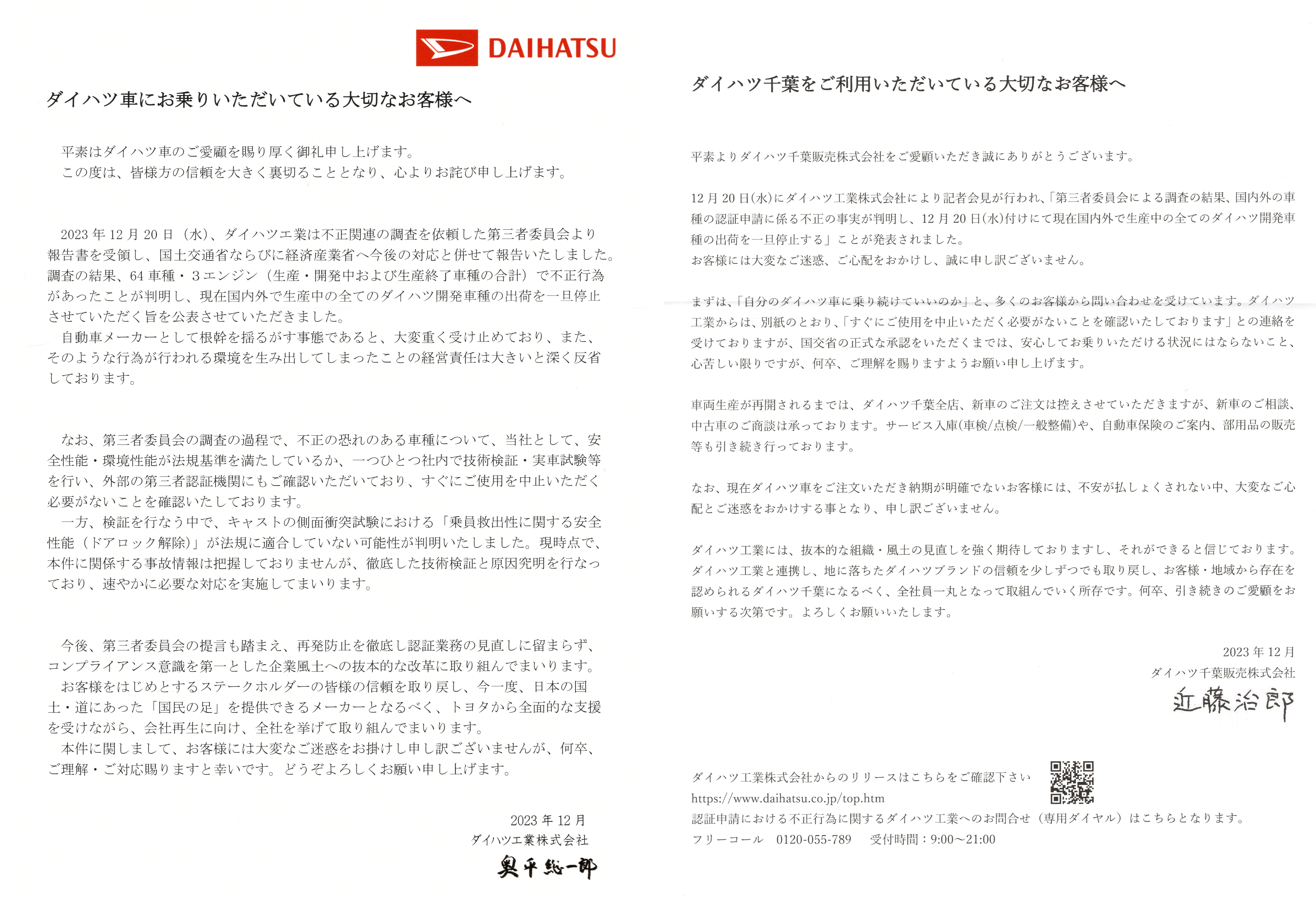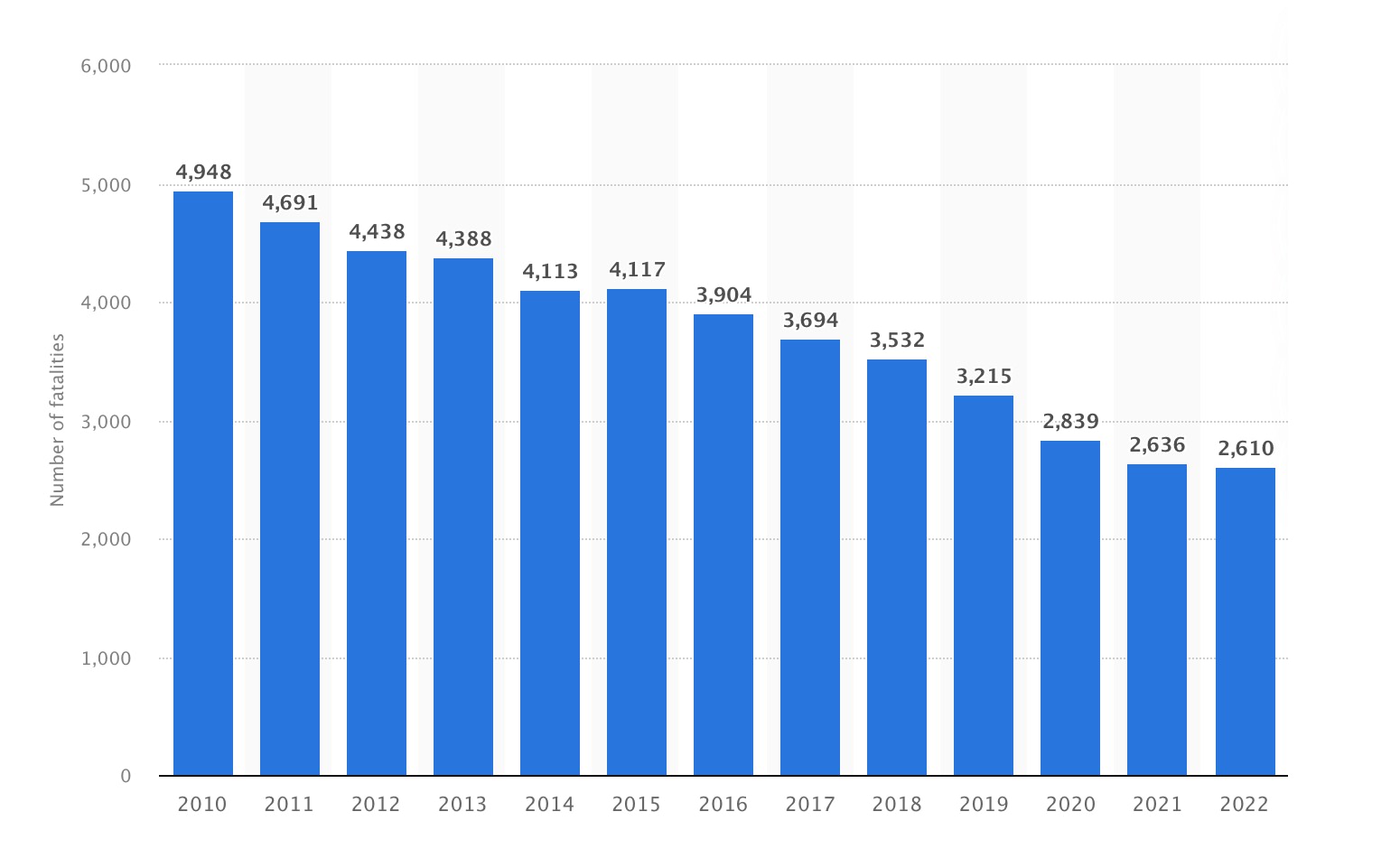A Letter from Daihatsu
Late last year, right before Christmas, Daihatsu Japan released a news statement reporting that some of the safety certifications for 64 vehicle models and three engines were fraudulent. The issue has apparently gone unnoticed for years and, as a result, cars may not be as safe in a collision as the public was lead to believe. In response to this news, the management of Daihatsu has shut down production of any vehicles identified as having false certifications and processes will be put into place to ensure that such things cannot happen again going forward.

This response is pretty boilerplate for any Japanese company found guilty – or even legitimately accused – of wrongdoing.
Japanese social media was buzzing with speculation about what sorts of problems might exist with the tens of millions of Daihatsu vehicles that navigate the roads every day, but I noticed an interesting pattern with many of the people I follow, who all own Daihatsu's plucky little Copen: "We're concerned, but won't stop driving the car."
In my case, I'm not concerned at all and most certainly will not stop driving my car. Heck, I don't even want any sort of refund or special service as a result of this situation. I knew that buying a car as small as a Daihatsu that it was not going to protect me from serious collisions. I've seen the aftermath of an accident involving a Daihatsu at busy intersections over the years. To say it's "not good" would be an understatement. This doesn't mean the vehicle is unsafe or is unable to protect an occupant from most types of crash, but it does mean I should pay just a little more attention to where other vehicles are while I'm effectively "queued up for a T-bone"1, which I should be doing anyway.
When people ask me why I'm so casual about this given the very real possibility of a new driver, young family, or elderly person being in a serious accident, I point to the overall track record of vehicle collisions since 2010:

Between 2010 and 2022, the number has almost halved. This is not because people are all clamouring to buy larger vehicles or because people drive more carefully today than they did before the advent of smart phones, but because vehicles – even those with falsified safety test results – are better able to protect its occupants today than ever before. Yes, every death is a tragedy, but not every death is preventable.
When some scoff at this, I follow up with a question:
Is there any company with more than a dozen people anywhere in this country that is 100% perfect in everything that it does? If so, they are lying to you.
We all know how situations like this come to pass. Senior management tells their people to accomplish a certain goal with very tight constraints. Middle management tells their people to make those goals a reality while having an egregious number of meetings with each other to make it look like they're busy. The people who report to middle management do what they can with the resources they have.
And then comes the actual problem: someone in the chain decides to muck things up a little bit. This can happen a number of ways. Perhaps someone is simply lazy and doesn't want to do their work. Perhaps someone is overworked and simply does not have the time to complete everything they're expected to do. Perhaps someone does not have the necessary training. Perhaps someone wishes to create havoc simply because they can.
Or maybe the issue is in management? A middle manager wants to get ahead of their peers by completing their work first. Or, more accurately, demanding their people to complete the work first. Or the manager wants to do something under budget, so does not talk to HR about bringing in one or two more people to help an already over-extended team. Or the manager is a walking example of the Peter Principle and is clueless about what's actually required and how to communicate it down the chain.
Fact of the matter is, anything that is created by humans is flawed in at least one area. The more complex something is, the greater the risk of flaws. I accept this risk and get out of bed each day not knowing whether my apartment will collapse in an earthquake, whether my car will be in the parking lot when I go outside, whether my shoe laces will remain tied, or whether my coffee will be hot by the time I take the first sip. However, based on historical patterns, I can assume that my apartment will withstand a common earthquake, my car will not be stolen, my shoes will remain on my feet, and my coffee will be hot for at least one sip.
I appreciate that Daihatsu is going to do better going forward, as any organisation that takes pride in its work should. However, I am not going to be angry or upset that such a thing was possible or that it affected the very car that I received just a few months ago and am still paying for. To demand perfection from everyone else when I cannot offer it myself is foolish, and life is too short to waste it on being upset over something like this.
Stopped with a fully-exposed side of the car, making a situation where an oncoming vehicle can slam into the driver or passenger door head-on more likely.